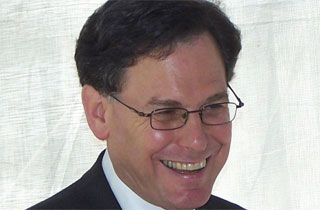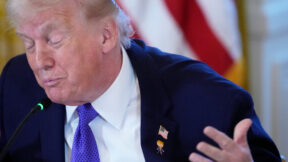Clinton’s Private Emails Reveal She Used Faulty Intel from Ally with Biz Interests in Libya
 The Clinton Server has already yielded some fruit: a blockbuster report by the New York Times reveals that Sidney Blumenthal, a longtime Clinton ally, provided misleading and/or inaccurate memos on Libya to then-Secretary of State Hillary Clinton in the hopes of creating favorable conditions for his private company to sign contracts with the new Libyan government.
The Clinton Server has already yielded some fruit: a blockbuster report by the New York Times reveals that Sidney Blumenthal, a longtime Clinton ally, provided misleading and/or inaccurate memos on Libya to then-Secretary of State Hillary Clinton in the hopes of creating favorable conditions for his private company to sign contracts with the new Libyan government.
Blumenthal had direct access to Clinton’s Secret Email due to his close relationship with the family: he served in Bill Clinton‘s administration as a senior advisor, worked on Hillary’s 2008 campaign (and pulled tactics that eventually got him frozen out of the Obama State Department), and, at the time of the emails, held numerous jobs: somehow, he was an employee of the Clinton Foundation and happened to be an adviser for the Constellations Group, a private consulting company that hoped to “pursue business leads in Libya”.
While the Constellations Group was on the ground in Libya — and, by the looks at it, failing miserably in their attempts to build a relationship with the transition government — Blumenthal relied on their reports to write intelligence memos to Hillary, who then sent them around to senior State Department officials. Not only did Blumenthal’s reports lack the rigorous fact-checking and vetting that other intel memos must undergo, they just seemed plain inaccurate to her staff. “Some of Mr. Blumenthal’s memos urged Mrs. Clinton to consider rumors that other American diplomats knew at the time to be false,” the Times noted. “Not infrequently, Mrs. Clinton’s subordinates replied to the memos with polite skepticism.
Here are some highlights:
In April 2012, [U.S. Ambassador to Libya J. Christopher Stevens] took issue with a Blumenthal memo raising the prospect that the Libyan branch of the Muslim Brotherhood was poised to make gains in the coming parliamentary elections. The Brotherhood fared poorly in the voting.
Another American diplomat read the memo, noting that Mrs. Clinton’s source appeared to have confused Libyan politicians with the same surname.
Mrs. Clinton herself sometimes seemed skeptical. After reading a March 2012 memo from Mr. Blumenthal, describing a plan by French and British intelligence officials to encourage tribal leaders in eastern Libya to declare a “semiautonomous” zone there, Mrs. Clinton wrote to Mr. Sullivan, “This one strains credulity.”
[Clinton’s Deputy Chief of Staff Jake Sullivan] agreed, telling Mrs. Clinton, “It seems like a thin conspiracy theory.”
But the skepticism did not seem to sour Mrs. Clinton on Mr. Blumenthal. She continued to forward Mr. Blumenthal’s memos, often appending a note: “Useful insight” or “We should get this around asap.”
Stevens would later be killed in the 2012 attacks on the U.S. Embassy in Benghazi — the event that prompted the House’s Benghazi Select Committee to subpoena these emails.
Naturally, the response to this report has been highly politicized: according to Politico, the Benghazi panel’s Democrats claim accused the Republicans of “selectively leaking the emails to damage Clinton” due to her presidential campaign.
[Image via Larry D. Moore/Wikimedia Commons]
— —
>> Follow Tina Nguyen (@Tina_Nguyen) on Twitter
New: The Mediaite One-Sheet "Newsletter of Newsletters"
Your daily summary and analysis of what the many, many media newsletters are saying and reporting. Subscribe now!






Comments
↓ Scroll down for comments ↓